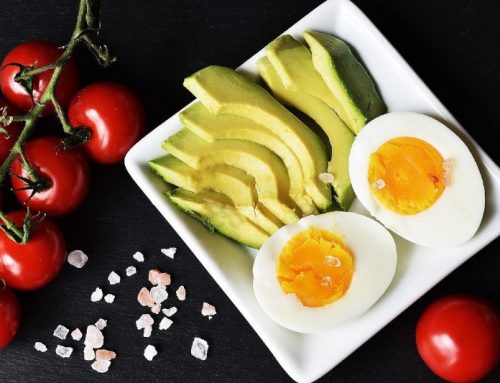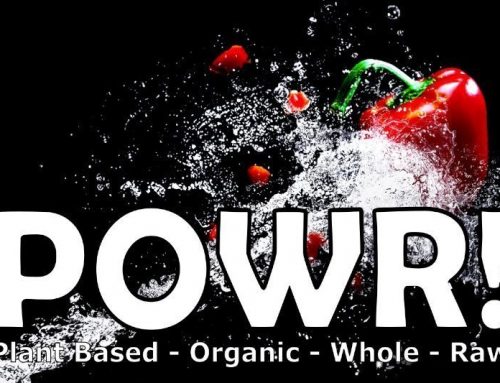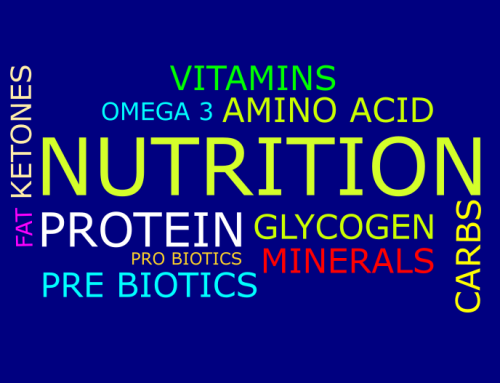There’s a lot of debate about whether or not a vegan diet is suitable for athletes and whether it’s possible to maintain your performance, particularly at an elite level while eating a plant based diet.
The general tone is one of damage limitation.
I take a different view. As athletes, whatever our current level, we are always looking for a competitive advantage and nutrition is obviously a huge factor in our performance.
Vegan athletes have a competitive advantage in these critical areas:
- Better Health and a Reduction in Vulnerability to Chronic Diseases.
- Increased blood flow and oxygen to the body's tissues.
- Lowered body fat and leaner body composition.
- Greater endurance due to Improved glycogen storage in muscle cells.
- Reduced oxidative damage by combating free radicals.
- Stronger Bones and fewer debilitating symptoms through better pH balance
- Decreased inflammation and faster recovery after intensive training.
- Improved Digestive Health.
Better Health and a Reduction in Vulnerability to Chronic Diseases
There is an overwhelming amount of research that shows a plant based diet reduces, eliminates or reverses many chronic diseases caused by a traditional western diet.
These include:
Heart Disease, Cardiovascular Disease, High Blood pressure, Stroke, Type 2 diabetes, Prostate, Colon, Breast and other Cancers, Macular Degeneration, Cataracts, Arthritis and Osteoporosis.
Increased blood flow and oxygen to the body's tissues.
We train to strengthen our heart and make it pump harder. But cholesterol clogs up our arteries reducing the efficiency of our cardio vascular system.
It also hardens our veins and arteries causing high blood pressure.
Research has shown that a low-fat vegan diet is the best way to lower cholesterol levels through what we eat, because plant foods contain no cholesterol. Don’t worry though as our liver makes all the cholesterol our bodies need.
The high fiber content of a vegan diet ensures we remove excessive cholesterol from our digestive tract. We need some of course, but too much can cause gallstones which is a debilitating condition.
Lowered body fat and leaner body composition.
In general, vegan diets tend to be lower in calories, protein, and fat making it harder to over eat and so easier to maintain your target weight.
Greater endurance due to improved glycogen storage in muscle cells
Because a plant-based diet is typically high in carbohydrates, it can offer performance advantages. Carbohydrates are the primary energy source during aerobic exercise, and endurance is enhanced by a high-carbohydrate intake.
Plants are loaded with complex carbohydrates. Complex Carbs have a low GI (Glycomic index). This means that blood sugar is released slowly over time which is ideal for endurance athletes.
Reduced oxidative damage by combating free radicals.
Exercise causes elevated aerobic metabolism, which in turn increases the production of free radicals.
Oxidative stress occurs when free radicals overwhelm your body’s ability to regulate them. For proper physiological function, you need to have a balance between free radicals and antioxidants.
Free radicals cause damage to parts of cells such as proteins, DNA, and cell membranes by stealing their electrons through a process called oxidation. When this happens, the cells their ability to function normally and may die.
Oxidative stress can contribute to conditions such as:
Cancer, Neurological disorders, Atherosclerosis, Hypertension, Ischemia/perfusion, Diabetes, Acute respiratory distress syndrome, Idiopathic pulmonary fibrosis, Chronic obstructive pulmonary disease, Asthma
A typical vegan diet comprises a wide range of antioxidant-rich foods which can reduce or eliminate oxidative stress.
Stronger Bones and fewer debilitating symptoms through better pH balance
Positive acid/alkaline balance is one of the most important factors in athletic performance The pH of human blood is strictly maintained by the lungs and kidneys at about 7.4 (7.35 to 7.45).
When you exercise or eat acidic forming food it produces toxins. This is called acidosis and apart from causing premature aging through cell degeneration it can also have the following symptoms (none of which are good for an athlete):
Increased heart rate, fatigue or drowsiness, confusion, shortness of breath, rapid and shallow breathing, headache, inflammation, dry skin, bleeding gums, brittle nails, thinning hair, irritability, fatigue, energy loss, joint pain and weakness, decreased immunity, psoriasis, yeast infections, kidney stones, liver congestion, and arterial damage.
Contrary to popular belief, it’s stress and the over consumption of acid forming foods, not a lack of dietary calcium, that lead to most cases of poor bone health and eventually osteoporosis.
If you don’t control your pH balance through diet your body may resort to using your bones as a source of calcium. The body pulls alkaline calcium from the bones. Over time, the bones become weaker and osteoporosis may result.
A vegan alkaline diet (leafy greens, wheatgrass, vegetables, sprouts, avocados, juicing, green smoothies, soups) as opposed to an acidic diet (high in animal products, processed carbs, refined sugar, and alcohol, cigarettes and coffee) is the best way to keep your pH in balance.
Decreased inflammation and faster recovery after intensive training.
Inflammation is the immune system’s mechanism for protecting the body from infection, trauma, toxins, chronic disease, acute illness, and physical stress.
Acute or short-lived inflammation is useful for preventing infection and healing wounds.
Chronic or long-term inflammation is bad for our health and our immune system, potentially contributing to allergies, asthma, cancer, diabetes, autoimmune conditions, and some infectious diseases.
Chronic inflammation occurs when the stressor causing the acute immune response doesn’t go away.
Exercise causes an acute immune response, which is essential for improving strength, performance, and even the immune system. However, without adequate rest and proper nutrition, regular intense exercise can result in chronic inflammation
Chronic inflammation manifests itself as over training, and things like bursitis or tendinitis.
Following a vegan diet can significantly reduce recovery time between workouts because they contain phytonutrients. This is a nutrient, found exclusively in plants that helps combat inflammation.
As well as phytonutrients and other vitamins plants are loaded with complex carbohydrates necessary for energy and muscle glycogen storage. Muscle glycogen is the main source of fuel for skeletal muscles during intense bouts of exercise and is essential for exercise and a vital part of the recovery process.
Improved Digestive Health
Research clearly points at plant-based diets as very beneficial for digestive health whilst it consistently shows that animal-based diets are detrimental.
The increased amount of dietary fibre in a vegan diet keeps things moving and prevents constipation and a vegan diet can also significantly reduce intestinal inflammation which can help prevent or treat many conditions.
There are so many performance benefits in choosing a vegan diet, beyond the ethical and environmental considerations, that it’s something you definitely need to consider.






Leave A Comment
You must be logged in to post a comment.